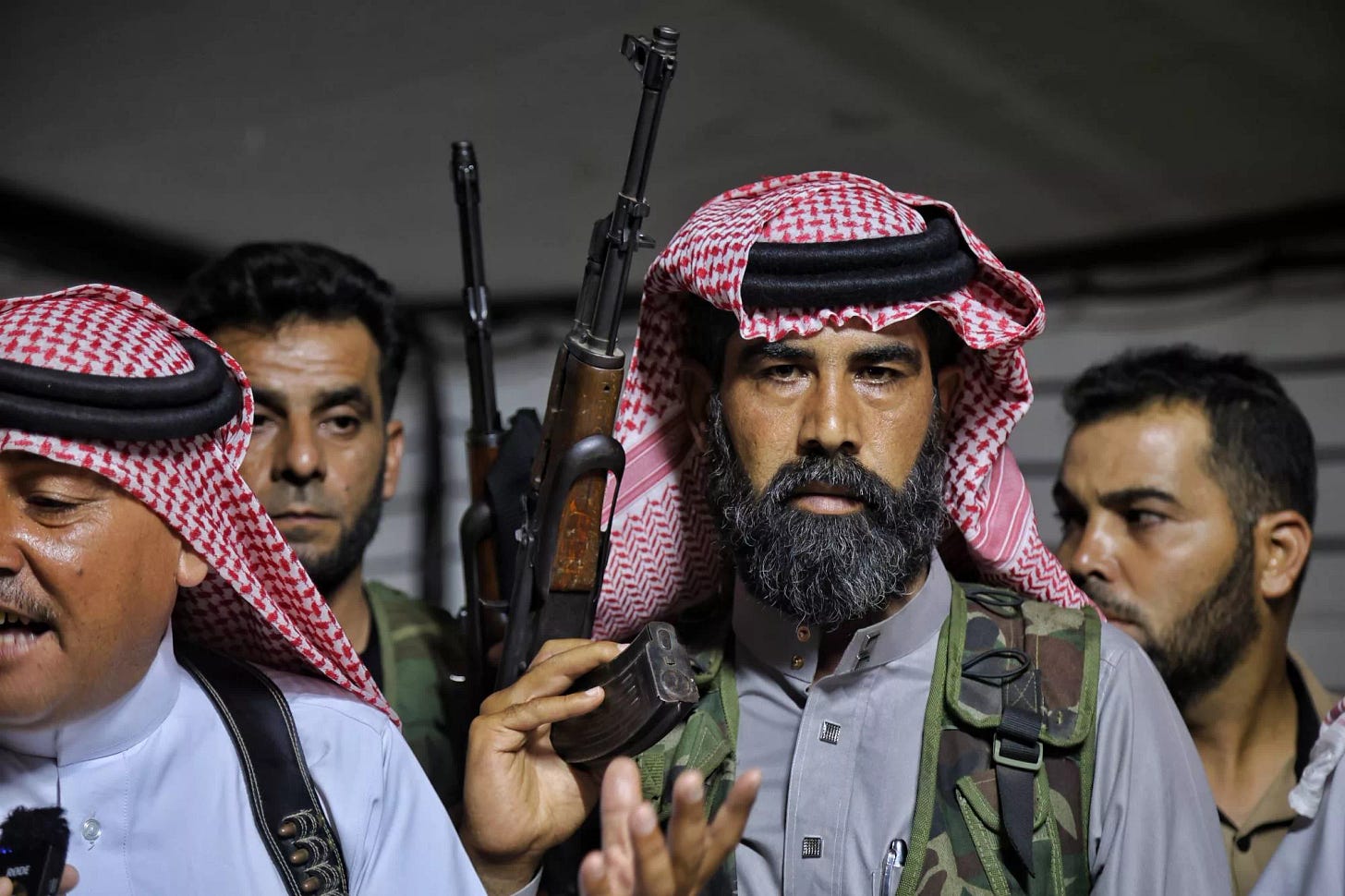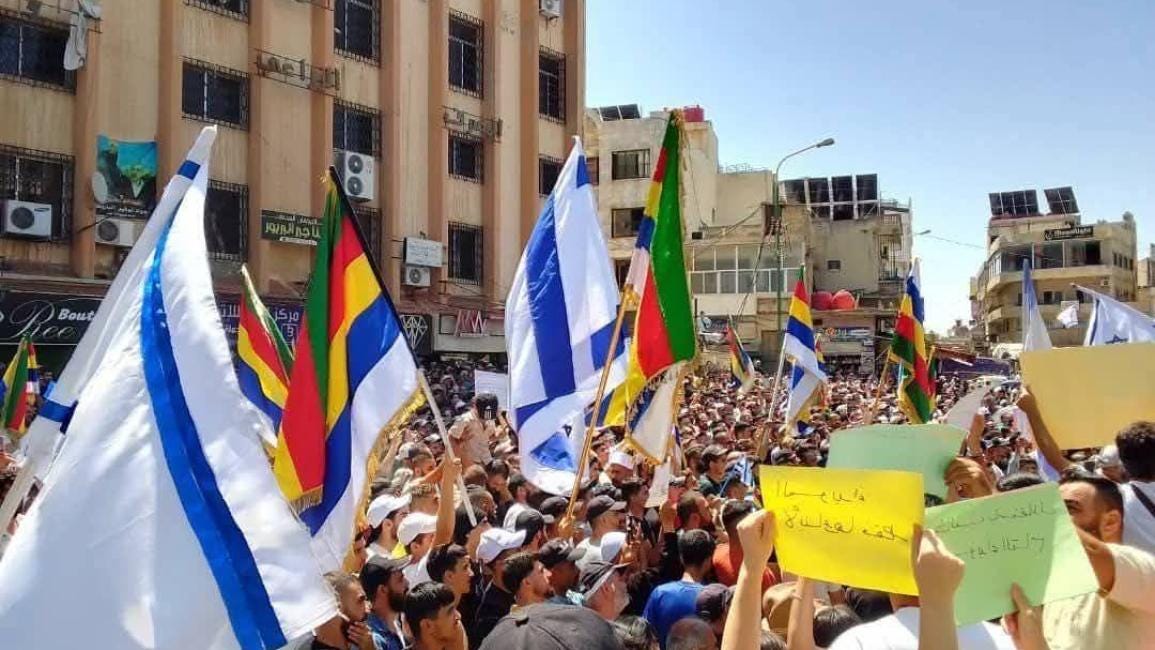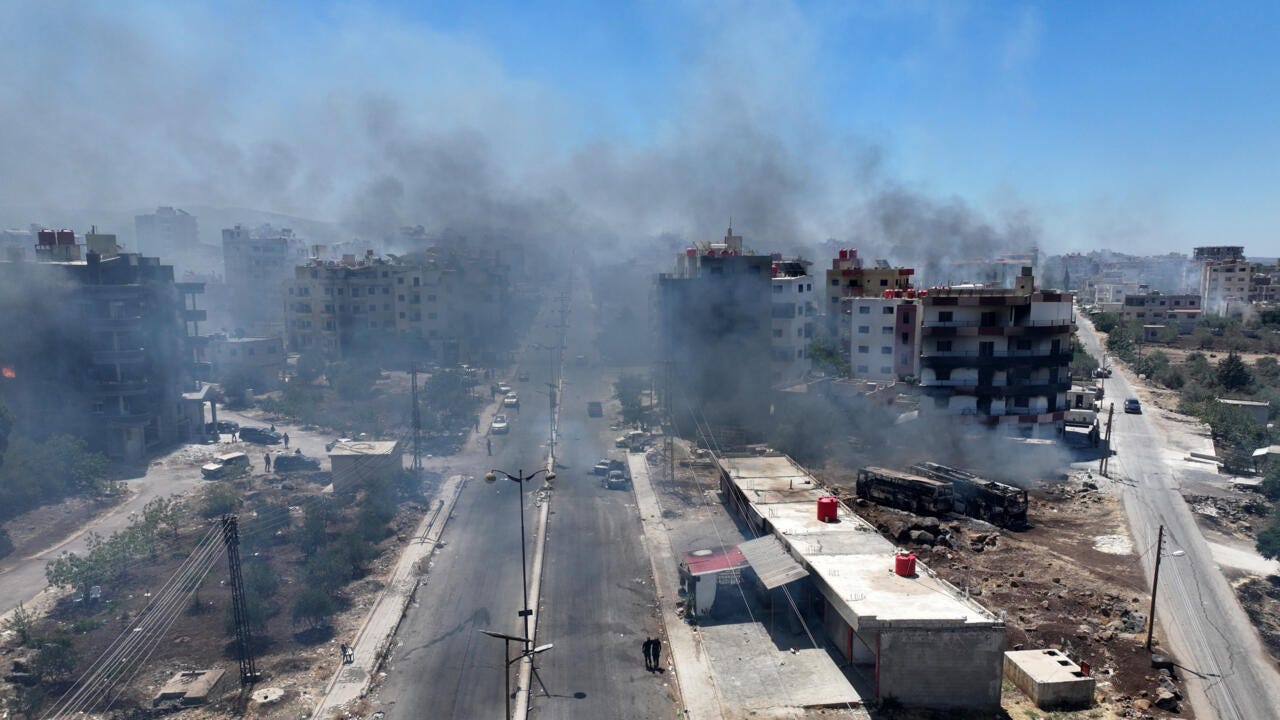The Bedouin tribes are an integral part of the social fabric of Sweida and its countryside, with roots that predate the formation of the Syrian state by centuries. These communities have preserved their semi-nomadic or mobile way of life, giving them a unique cultural and social identity within the Mount Druze region.
Historically, these tribes formed a human and geographic bridge between Syrian provinces and neighboring countries, playing a vital role in maintaining social equilibrium. Relations were marked by cooperation in the face of threats and by fostering economic exchange.
Amid current political and security upheavals, these tribes have re-emerged as key actors in resisting both internal and external attempts at domination. Today, they stand at the forefront of a conflict where regional ambitions clash with efforts to impose a new status quo that threatens Sweida's delicate balance.
Tribal Presence in Sweida
Bedouin tribes reside on the outskirts of Sweida and in some of its neighborhoods, living a semi-settled or nomadic life. Among the most prominent is the Masa’id tribe, which predates the Druze migration to the mountain and traditionally relied on herding, according to Turki Al-Mustafa, a historian specializing in the origins of Levantine Arab tribes, speaking to NoonPost.
Other notable tribes include the Hassan and Shanabla, descendants of the Zubaid tribe; the Sharafat and A’zamat tribes with roots in eastern Jordan and allies of the Masa’id; as well as the Sardiyah of Tanukh origin. Additional tribes such as the Bakkara, Anza, Mahamid, and Qatifan are primarily located in the southeastern countryside.
Sweida’s tribes are closely connected by kinship and marriage to tribes in the countryside of Damascus, Daraa, Homs, and Deir Ezzor. When one of their branches faces a threat, others quickly mobilize in solidarity across provinces.
Political analyst and Arab-Israeli conflict expert Saleh Al-Abdullah emphasizes that Syrian tribes possess a deeply ingrained culture of solidarity, rooted in traditions of defending the oppressed. This means that any targeting of a tribe in one area is perceived as a national issue resonating across Syria.
He argues that the tribal presence transcends narrow local confines and constitutes a pillar of national unity and cohesion something external powers are seeking to dismantle by fragmenting these communities into isolated, warring cantons.
Al-Abdullah interprets tribal mobilization in support of their southern counterparts as a clear message: national identity is inseparable from tribal continuity. Any effort to divide the country will be met with the unity of land, family, and shared belonging.
The Right to Defense
The principle of legitimate self-defense guarantees the right of individuals and communities to protect themselves and their property—particularly when faced with violations by rogue armed groups, including killings and forced displacement.
Due to international pressures that have limited the government’s security presence in Sweida, self-defense has become a necessary—though not aggressive—option, according to Al-Abdullah.
On the subject of tensions between the Druze community and the Bedouin tribes, Al-Mustafa explains that these date back to competition over grazing and farmland prior to the formation of the Syrian state. Back then, tribal customs were the primary method of conflict resolution. Successive Assad regimes have only fueled these tensions.
However, history also records instances of alliance between the Druze and the Bedouins in resisting military campaigns and French colonial occupation. Al-Mustafa suggests reviving traditional reconciliation mechanisms, forming peace committees, disarming illegal groups, integrating local factions into the Syrian army, and issuing a national charter that explicitly rejects foreign interference.
Foreign Agendas at Play
Historian Turki Al-Mustafa argues that the targeting of tribal communities is part of a broader plan to isolate Sweida from Syria and foment instability that ultimately benefits Israeli interests. This includes arming rogue groups to carry out ethnic cleansing and loot civilians.
He warns that blocking full deployment of the Syrian army in the province exacerbates bloodshed and complicates the situation further. Meanwhile, the government continues to exercise restraint while remaining firm in the face of threats to civil peace.
Political analyst Saleh Al-Abdullah supports Al-Mustafa’s view, noting that the Syrian state is aware of the delicacy of the situation in Sweida. It makes decisions based on national priorities, recognizing that preserving Syria’s unity requires a careful balance restraint in some matters, and decisiveness in others, such as confronting threats to national cohesion or targeted attacks on certain communities.
Al-Abdullah told Noon Post that the Syrian government’s equal distance from all societal groups, its refusal to favor one faction over another, and its commitment to prosecuting perpetrators—regardless of affiliation—have enhanced both domestic and international trust.
This, in turn, has prompted regional and Western actors to pressure Israel to cease its interference in Syrian affairs.
He continued by saying that Israel's interest lies in preventing the rise of a strong Syrian state capable of challenging its existence. After all, the Syrian people have shown remarkable resilience, even against the world’s second most powerful military Russia.
A united Syria, able to swiftly transform its population into a highly motivated ideological army, poses a serious threat to Israeli security—especially when compared to Israel's own military, which relies on financial incentives and recruitment efforts.
According to Al-Abdullah, Israel aims to impose its dominance over Syria and destabilize the southern region by orchestrating a demographic reshuffle to expel Bedouin tribes and transform the area into a loyal buffer zone.
These tactics mirror prior displacement policies used in Palestine, and involve exploiting local actors to sabotage security and derail agreements with the Syrian state.
Self-Defense vs. Secession
Dr. Khaled Al-Mustafa, a specialist in international law, affirms that while tribes have a natural and moral right to self-defense under the law, this must not extend to the formation of permanent armed forces.
He warns that any unilateral declaration of autonomy constitutes rebellion against the constitution. The forced displacement of families based on identity is, he stresses, a crime against humanity and must be explicitly condemned and documented.
On the issue of "collective defense," which some tribes may invoke, Al-Mustafa notes that this is permissible only in emergency situations provided it remains a legitimate and temporary measure. It must not lead to the permanent militarization of tribes or the creation of independent armed entities.
“The law guarantees protection but does not allow the carrying of arms outside state authority or the creation of parallel security structures,” he stated.
Dr. Al-Mustafa stressed that no sectarian or ethnic group has the right to declare autonomy unilaterally within a sovereign state. He explained that the Syrian constitution only recognizes local administrative governance—not autonomous rule—and any attempt to bypass this framework is an illegal rebellion against the legislative, executive, and judicial authorities of the state, and is prohibited under international law.
He called on the international community and human rights organizations to document the violations faced by civilians in Sweida particularly instances of mass eviction, threats of expulsion, and arson stating that such actions represent flagrant violations of both domestic and international law.
He concluded by saying that recent government actions were a direct response to serious threats to state sovereignty, and that what Hikmat Al-Hijri is doing, in his view, amounts to high treason under Syrian criminal law.
Sweida’s current landscape reveals a deeply entangled struggle where the historical and social role of tribal communities intersects with regional and international agendas. The province has become a battleground over identity and sovereignty, with efforts to redraw its demographic makeup aligning with broader foreign interests that aim to dismantle Syrian unity.
The ultimate test lies in the Syrian state’s ability to regain control, enforce the rule of law equally, and shield internal dynamics from external exploitation—thereby preserving the social fabric and closing the door on plans for division and chaos.




